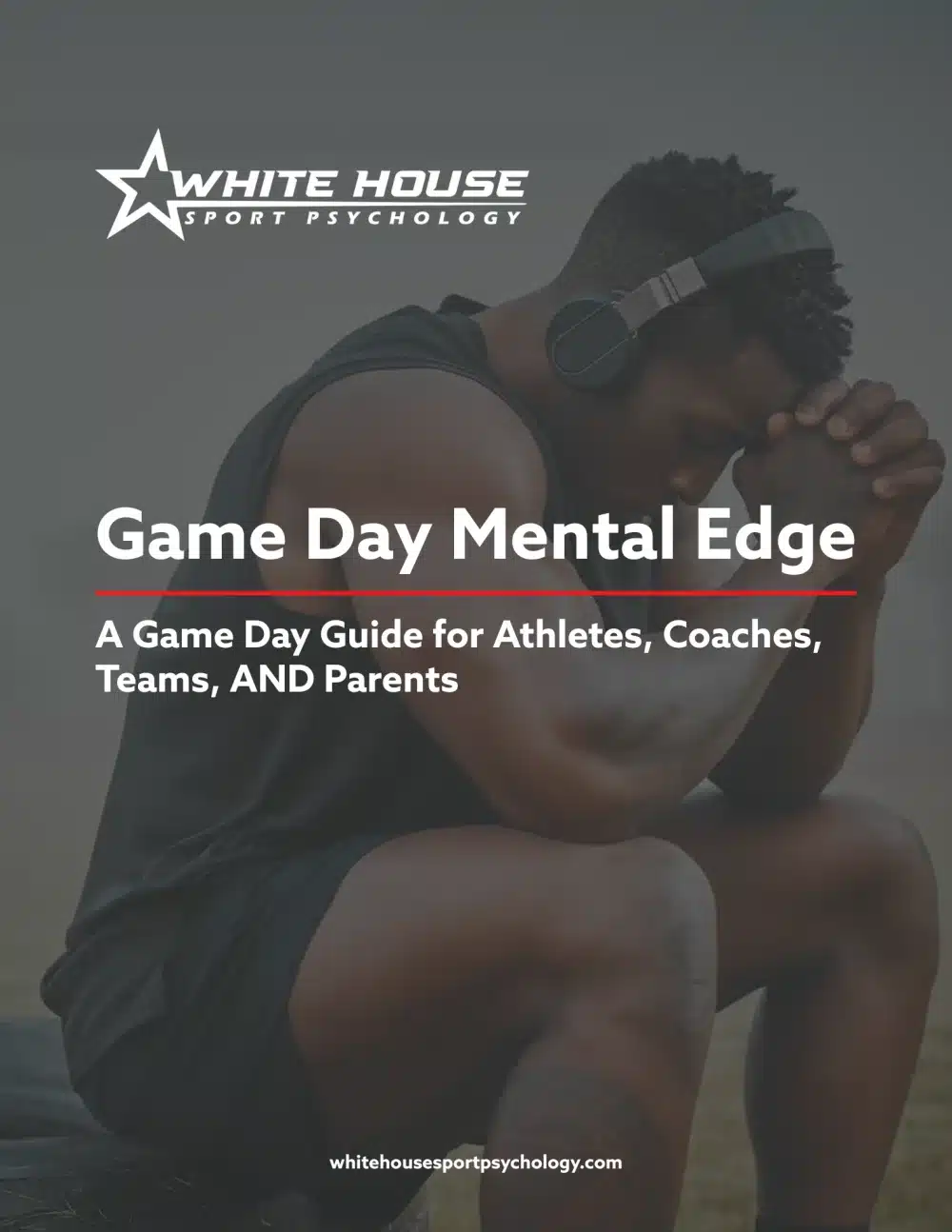Athletes often face inner battles just as intense as the physical ones they face on the field or court. One of the most common challenges is the overwhelming sense that they know they need to change their mindset, but they feel stuck, unsure of how to get from where they are to where they need to be mentally.
Thoughts Many Athletes Have:
- “I don’t want to limp into securing a roster spot.”
- “I don’t want to limp into the playoffs.”
- “I don’t want to back-door my way into the postseason.”
- “I’m tired of playing scared and passive.”
- “I know I need to play more assertively and aggressively.”
- “I know I need to be more confident.”
- “I know I need to change my focus.”
These thoughts are familiar for even elite athletes feeling held back by uncertainty, self-doubt, or hesitation in their performance. Knowing you need to be more confident or aggressive on the field isn’t enough; the real challenge lies in how to actually shift your mindset to make it happen.
The Core Problems Athletes Face:
- Unclear Focus: Many athletes know they need to focus but don’t know what to focus on. This leaves them chasing thoughts that hinder their performance.
- Mindset Change: They understand they need a stronger, more aggressive mindset but aren’t sure how to develop it. The will is there, but the process is missing.
- Controlled Aggression: Balancing assertiveness with control is a tough mental challenge. Some athletes overdo it, leading to mistakes, while others underdo it, playing too passively.
- Distractions and Mental Noise: Athletes struggle with mental clutter, focusing on things that disrupt their flow instead of fueling their performance.
At this point, many athletes ask, “How do I change my mindset?” or “How do I focus on things that help, rather than distract?”
Solution: Sport and Performance Psychology
Sport and Performance Psychology isn’t the same as traditional counseling, which typically focuses on diagnosable mental health concerns like depression, anxiety disorders, or OCD. While important, that’s not where Sport and Performance Psychology’s primary focus lies. Instead, it addresses performance challenges and equips athletes with mental tools to thrive in high-pressure situations.
In essence, Sport Psychology focuses on building mental strength, flexibility, and endurance. Athletes learn how to develop grit, resilience, persistence, and adaptability, all crucial for high-performance environments. These mental muscles are just as critical as physical ones for peak performance.
Here’s how Sport and Performance Psychology training addresses the key challenges athletes face:
1. Developing a Laser-Focused Mindset
Many athletes don’t know what to focus on in high-pressure moments. Sport and Performance Psychology helps identify specific, productive focal points. For example, instead of worrying about the game outcome, White House Sport Psychology teaches athletes to focus on immediate, controllable actions like technique, breath control, or specific movements. This shift in focus helps block out distractions and enables athletes to stay in the zone.
White House Sport Psychology teaches athletes techniques like mindfulness and mental imagery which allows their athletes to center their attention on the present moment, improving performance consistency.
2. Changing the Mindset to Compete With Confidence and Assertiveness
Shifting from a passive to an assertive mindset involves training the brain to reframe situations and react differently under pressure. White House Sport Psychology specializes in teaching athletes how to:
- Build confidence by reinforcing past successes and visualizing future triumphs.
- Cultivate assertiveness through self-talk techniques and action-oriented thinking.
- Develop a growth mindset, understanding that setbacks aren’t permanent, but learning opportunities.
Through repeated practice, athletes learn to trust their abilities, helping them perform with the kind of freedom that leads to confident, aggressive play.
3. Competing With Controlled Aggression
There’s a delicate balance between aggression and control in sports. Too much aggression can lead to errors, penalties, or burnout, while too little leaves an athlete playing passively. Sport Psychology teaches the concept of “flow state”, where an athlete can perform with intensity while remaining calm and controlled.
Mental strategies like energy regulation (learning to manage adrenaline and emotional intensity) allow athletes to stay aggressive without overdoing it. By mastering controlled aggression, athletes play with the edge they need to dominate without making costly mistakes.
4. Strengthening Focus and Attention
Performance psychology provides tools for managing distractions and improving focus. Athletes learn to filter out the noise—whether it’s crowd noise, self-doubt, or fear of mistakes—and focus on what’s productive.
Through attention control training, athletes practice zoning in on task-relevant cues, and blocking out anything that doesn’t contribute to their performance. They can then execute their game plan with clarity and precision, even in high-pressure situations.
5. Building Mental Resilience and Adaptability
Competing with confidence, focus, and controlled aggression isn’t just a one-time achievement. It requires ongoing mental conditioning, just like physical training. White House Sport Psychology helps athletes build long-term mental resilience. By cultivating adaptability, athletes become better equipped to handle the ups and downs of competition, from last-minute roster changes to unexpected game developments.
Skills like managing nerves and anxiety, letting go of mistakes, and trusting in their abilities become second nature, enabling athletes to perform with freedom and grit.
Conclusion: Becoming a Mentally Strong Competitor
The solution to an athlete’s most pressing mindset challenges lies in consistent Sport and Performance Psychology training. By learning to build mental strength, endurance, and flexibility, athletes can break free from the paralyzing thoughts that hold them back, gain control over their mindset, and learn to compete with confidence, assertiveness, and focus.
When athletes master their mental game, they stop merely surviving the season. Instead, they thrive—unlocking their full potential to not just make it to the playoffs or secure a roster spot but to dominate with confidence and skill.
Ready to become a mentally strong competitor? Start with a free consultation by clicking here.

